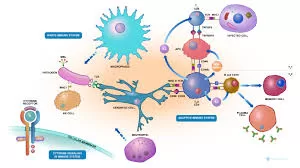
January 25, 2024 — Researchers at Rutgers Health have unveiled IntelliGenes, a groundbreaking software that leverages the power of artificial intelligence (AI) and machine learning to analyze genomic biomarkers and predict diseases in individuals. Unlike existing tools, IntelliGenes is designed to be user-friendly, enabling a wide range of users, including nonexperts and students, to explore and interpret the complete human genome.
Published in the journal Bioinformatics, a study led by Zeeshan Ahmed, a faculty member at Rutgers Institute for Health, Health Care Policy and Aging Research (IFH), details the capabilities of IntelliGenes. The software is positioned to revolutionize the field by combining traditional statistical methods with advanced machine learning algorithms, providing personalized patient predictions and visual representations of disease-relevant biomarkers.
Ahmed emphasized the lack of accessible AI and machine-learning tools for investigating the entire human genome, especially for nonexperts. IntelliGenes aims to bridge this gap by offering a platform that is user-friendly and requires no strong background in bioinformatics or access to high-performing computers.
“In the convergence of datasets and the staggering developments in artificial intelligence and machine learning, IntelliGenes can support personalized early detection of common and rare diseases in individuals, as well as open avenues for broader research ultimately leading to new interventions and treatments,” said Ahmed, who is also an assistant professor of medicine at Robert Wood Johnson Medical School.
The software’s capabilities were put to the test in a study published in Scientific Reports, where researchers successfully applied IntelliGenes to identify novel biomarkers and predict cardiovascular disease with high accuracy. The findings underscore the potential of IntelliGenes in advancing early detection and personalized medicine.
IntelliGenes utilizes a combination of conventional statistical methods and cutting-edge machine learning algorithms to analyze multigenomic and clinical data. The software’s user-friendly interface makes it accessible to a diverse audience, empowering users without extensive bioinformatics knowledge to explore genomic biomarkers and predict diseases.
The researchers conducted tests using Amarel, a high-performance computing cluster managed by the Rutgers Office of Advanced Research Computing. This resource ensures that IntelliGenes can handle complex computational and data-intensive projects, providing a robust platform for researchers engaged in groundbreaking research.
Coauthors of the study include William DeGroat, Dinesh Mendhe, Atharva Bhusari, and Habiba Abdelhalim of IFH and Saman Zeeshan of Rutgers Cancer Institute of New Jersey. IntelliGenes stands as a testament to the potential of AI and machine learning in revolutionizing disease prediction and personalized medicine.











